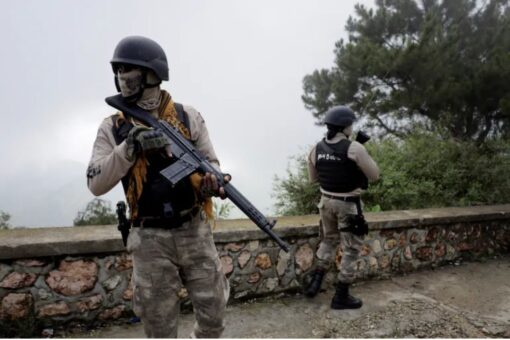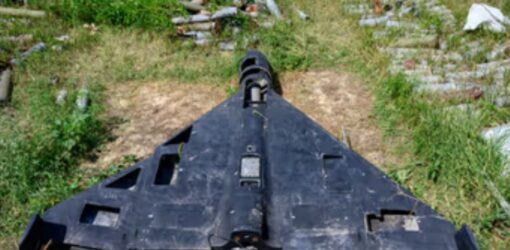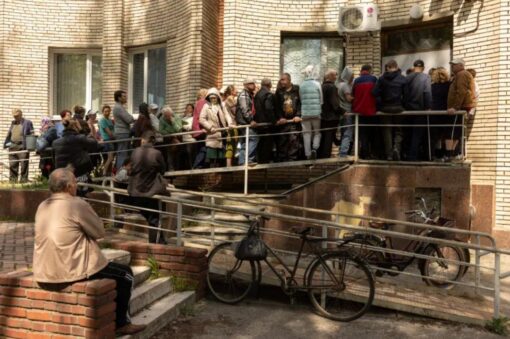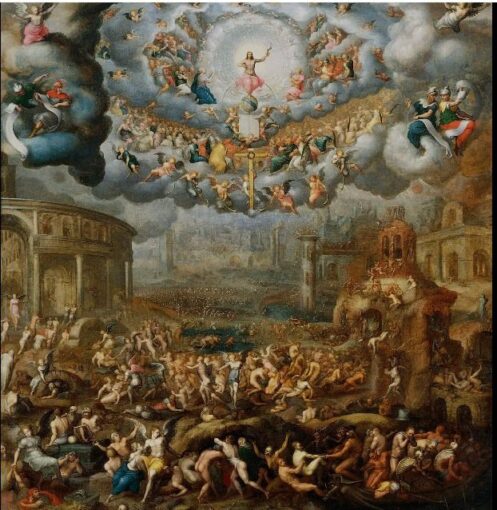The streets of Port-au-Prince were once again plunged into mourning as a deadly drone strike killed eight children in the Haitian capital, fueling widespread anger and intensifying fears over the nation’s worsening security crisis.
The tragedy, which unfolded in a densely populated neighborhood already struggling under the weight of violence, has become a grim symbol of how Haiti’s fragile state is increasingly defined by conflict, lawlessness, and technological warfare.
The Haiti drone attack not only robbed families of their children but also shattered whatever sense of safety the community still clung to amid relentless gang control and political instability.
According to eyewitnesses, the drone appeared without warning before releasing an explosive payload that struck a residential cluster where children had gathered. Neighbors described scenes of chaos as parents screamed and rushed to the site, desperately digging through rubble in hopes of saving their young ones.

Local doctors reported that some survivors suffered critical injuries, with hospitals already overwhelmed and under-resourced to handle mass casualty events. Community leaders lamented that the incident represents yet another escalation in tactics used by armed groups who continue to terrorize the capital with impunity.
The use of drones in Haiti’s urban warfare is not entirely new, but the deliberate targeting of civilians—especially children—marks a chilling development.
Security analysts argue that gangs controlling large parts of Port-au-Prince are increasingly experimenting with low-cost commercial drones modified to carry explosives, giving them a powerful weapon that bypasses traditional defenses.
Unlike gunfire or arson, which communities have tragically grown accustomed to, drone strikes strike fear on a new level, as they can be carried out remotely and without warning. The Haiti drone attack has left residents wondering how to protect themselves in a city where even the skies can bring death.
Haitian officials condemned the strike as an act of terrorism, vowing that those responsible would be brought to justice. Yet such promises ring hollow for many citizens who have watched the state steadily lose its ability to enforce law and order.
In Port-au-Prince, police forces are outnumbered and under-equipped, while gangs openly challenge the authority of the government.
For grieving families, official statements offer little comfort as they bury their children and brace for the next assault. The sense of abandonment by the state deepens the anger that erupted in the aftermath of the attack, with protests breaking out in multiple neighborhoods.
International organizations have also expressed alarm. UNICEF called the deaths of eight children “a devastating reminder of how violence is robbing Haiti’s youth of their future.” Human rights groups are demanding urgent intervention to prevent the proliferation of drone warfare in the country.
The United Nations, which has been deliberating on how to assist Haiti’s security forces, faces renewed pressure to act swiftly before the situation deteriorates even further. Yet past attempts at intervention have often been met with skepticism from Haitians wary of foreign involvement, given the mixed legacy of international missions in the country.
For many residents, the Haiti drone attack has crystallized a feeling of being trapped in an endless cycle of violence. Port-au-Prince has been paralyzed for months by gang blockades, kidnappings, and extortion rackets that leave families with no safe passage in or out of their communities.
Schools struggle to operate, healthcare is collapsing, and now even children at play face the risk of being victims of drone warfare. “They were just playing outside,” one grieving mother told local reporters. “They had no weapons, no fight, only laughter. Now they are gone because this city has no peace.” Her words capture the despair of countless families living under constant threat.
The attack also underscores the global danger of accessible drone technology falling into the wrong hands. What once required state-level military resources can now be improvised with consumer drones and simple explosives. Haiti has become a case study in how fragile states can be transformed when criminal networks embrace technology to expand their power.
Without effective countermeasures, experts warn that drone attacks could become a recurring nightmare, not just in Port-au-Prince but in other parts of the world where governance is weak.
The Haitian diaspora, many of whom have family members still living in Port-au-Prince, reacted with shock and fury as news of the drone strike spread across social media.
Messages of solidarity flooded online platforms, while activists called for global attention to the plight of Haiti. Many argue that the world ignores Haiti until tragedy strikes, and even then the response is often limited to statements of sympathy rather than concrete action.
The Haiti drone attack killing eight children has reignited calls for the international community to treat Haiti’s security crisis as a global emergency rather than a local misfortune.
As night fell after the attack, residents lit candles and gathered in makeshift vigils, mourning the lives cut short. For parents who lost their children, grief is compounded by the knowledge that justice may never be served in a country where impunity reigns. The haunting memory of the drone strike will linger as a reminder of how precarious life in Port-au-Prince has become.

In the absence of peace, communities continue to rely on resilience, faith, and mutual support to survive daily terror. But there is an overwhelming fear that if nothing changes, more tragedies like this one will follow.
The Haiti drone attack has once again forced the world to confront uncomfortable truths: that children are bearing the brunt of a conflict they did not create, that technology can amplify terror in places least prepared to defend against it, and that promises of justice and security mean little without concrete action.
As families bury their children, their voices rise in unison with one demand—that the world must not look away. Because for the people of Port-au-Prince, silence in the face of such horror would be yet another betrayal.


